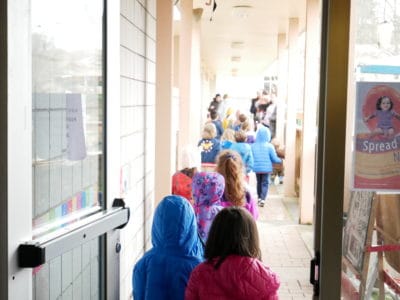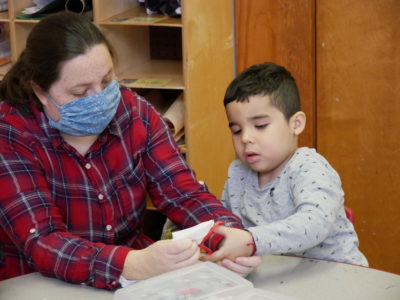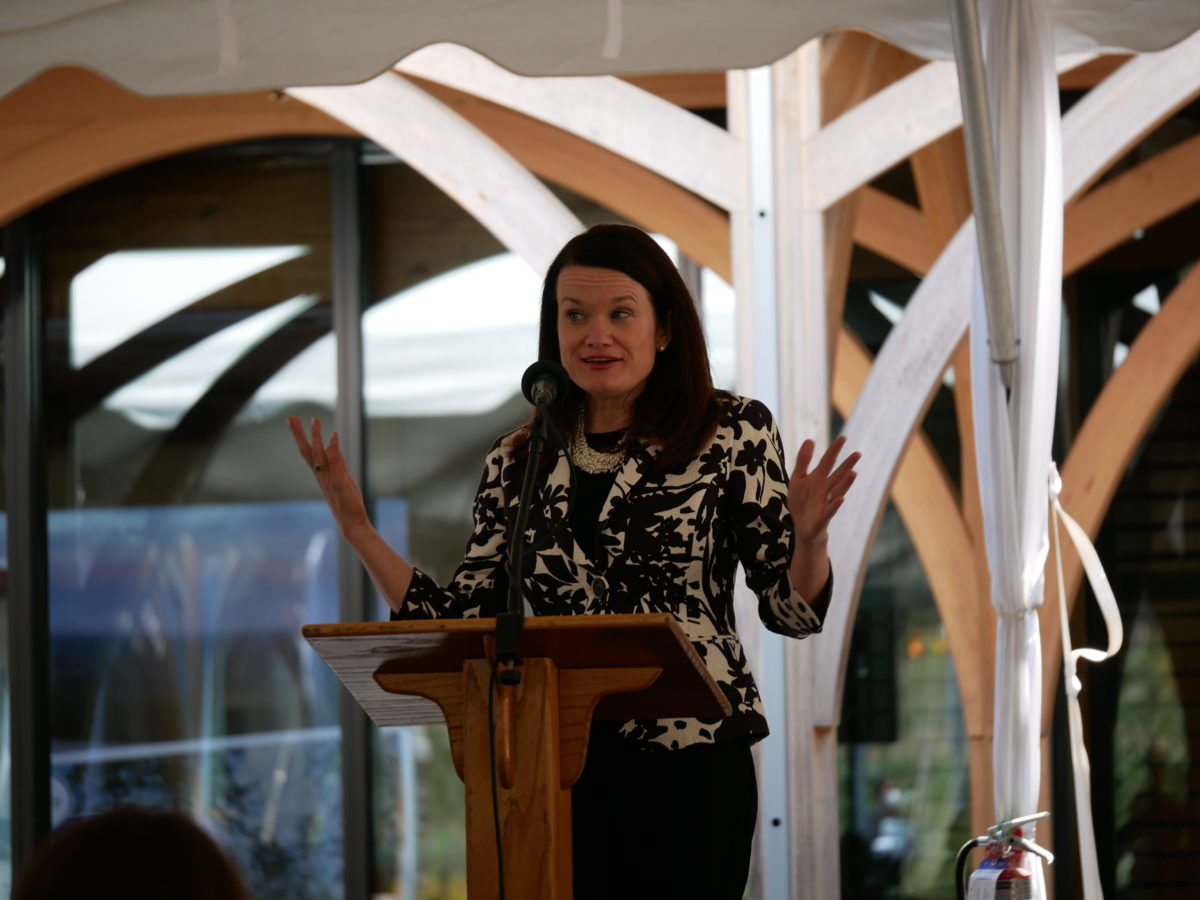
Share this story
- "We must make people uncomfortable with the data," said @ascubbage, president of @ncsmartstart, to a room of #earlychildhood funders, leaders, and advocates this week. "We should not be sleeping well."
- In Guilford County, @4school4life aims to build a universal "connected, innovative system of care" for young children and families. What can the state learn?
|
|
Guilford County was in the spotlight Wednesday at a gathering of early childhood funders, advocates, policymakers, and researchers asking how to create a universal system of care for young children.
One of Guilford’s state House members, Ashton Clemmons, a Democrat, shared numbers she said she takes personally about the reach of early care and education programs in North Carolina:
- The state reaches about half of 4-year-olds eligible for NC Pre-K.
- When it comes to Head Start, a national program for low-income preschoolers, the state reaches 19% of eligible children.
- Six percent of children eligible for Early Head Start, the program’s counterpart for infants and toddlers, are being served in the state.
“Our state’s better than that — or we should be,” Clemmons said.
Hosted at Duke University, the gathering, “Building a Universal System for Families with Young Children in North Carolina,” was organized by the Center for Child and Family Policy at Duke’s Sanford School of Public Policy and by The Hunt Institute.
Other data points, including declining kindergarten-entry literacy skills, racial disparities in infant mortality, and low pay for early childhood teachers, were held out at the event as unacceptable realities for young children and families.
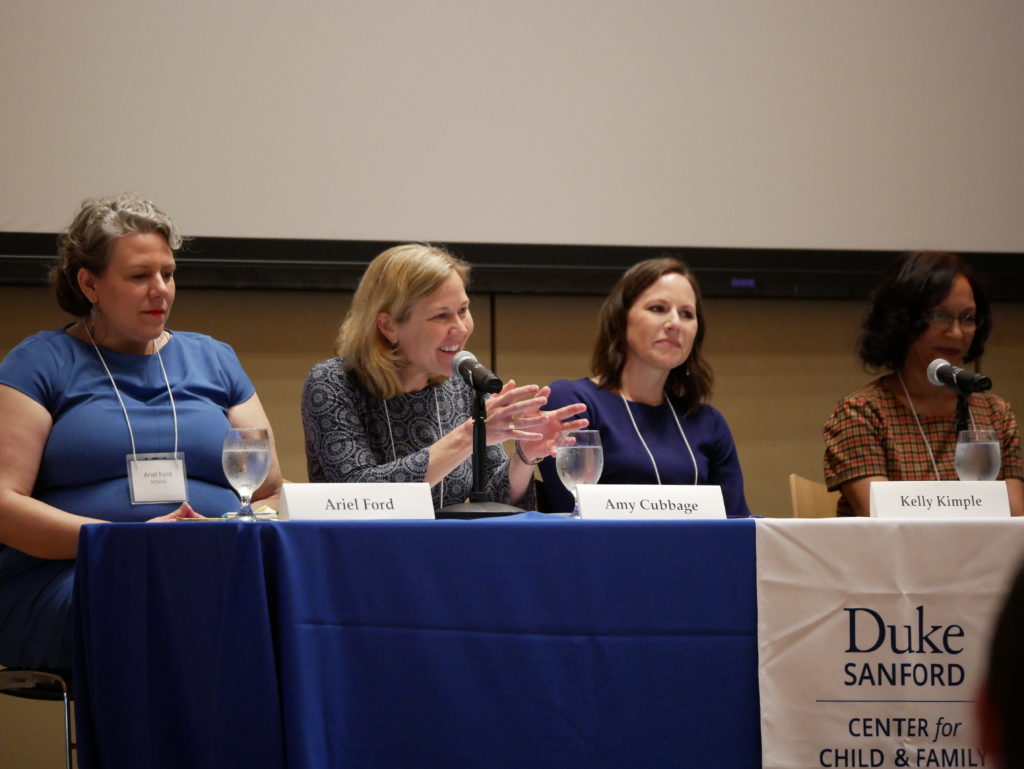
“We must make people uncomfortable with the data,” Amy Cubbage, president of the North Carolina Partnership for Children, said during one panel. “We should not be sleeping well.”
Discussion also included common points on the importance of the earliest years: for children’s brain development, school success, families’ well-being and workforce participation, and the state’s economic growth.
‘A connected, innovative system of care’ in Guilford
“Yes, we want to invest in job training and workforce development … we want to invest in schooling and preschool programs, but the more we can invest in the early years — in supporting women, children, and families prenatally up to age 3, and then shifting that focus to ages 3 to 8 — it’s going to yield a higher return,” said Charrise Hart, the CEO of Ready for School, Ready for Life, a Guilford County nonprofit aiming to create a network of high-quality services for all young children and their families.
These challenges and opportunities motivated the launch of that group back in 2014, when community leaders acknowledged that change was needed. The nonprofit serves as a backbone organization for the Get Ready Guilford Initiative. The initiative’s aim is population-level progress, focused on two main outcomes: literacy development and social-emotional competence. The group breaks its work into two phases: prenatal to 3, and 3 to 8.
“We may not have the finance backing … that we see in Charlotte,” Hart said. “We may not have the RTP approach that we see in Raleigh (and) Durham. But we’re a strong community, and we do value our earliest and youngest learners, and so that’s why we are investing in them.”
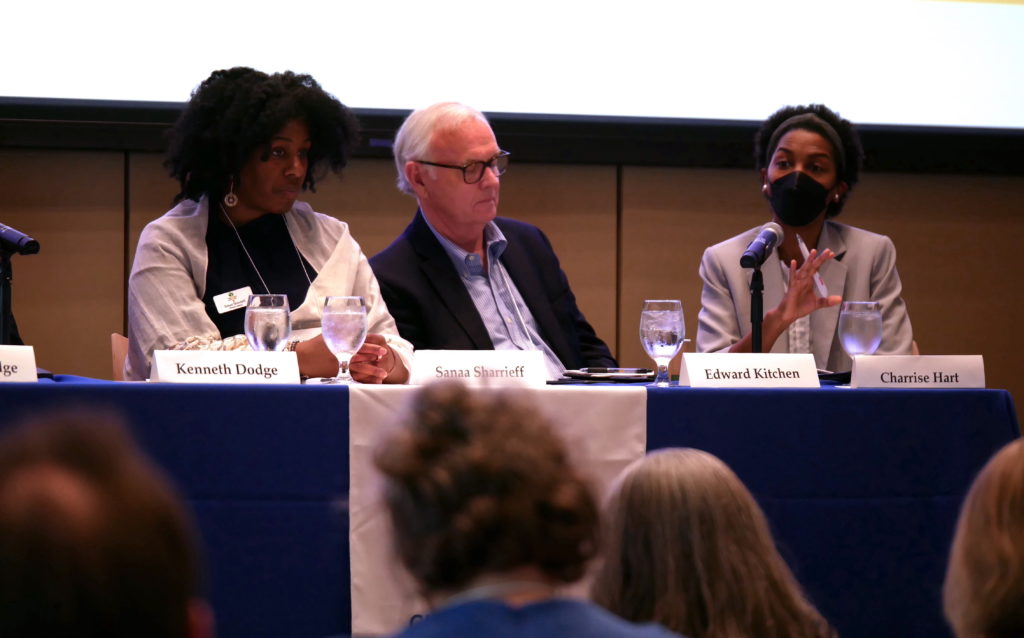
With substantial philanthropic investments, including tens of millions from Blue Meridian and the Duke Endowment, the group plans to reach its vision over the next decade — not by creating another program, but by connecting the dots for families with young children. The goal, as the group’s website says, is “to build a connected, innovative system of care.”
Edward Kitchen, board co-chair of the nonprofit, shared the work’s origin story Wednesday, starting with experiences he had as city manager of Greensboro. Children were living in poor housing conditions, unable to reach services without transportation, and following their older siblings’ involvement in the juvenile court system.
When it came to education, Kitchen said, he saw persistent challenges. He was involved with a philanthropic effort to raise math scores in local high-needs high schools that didn’t make much of a difference.
“When we asked the provost of UNC-Greensboro, who was the evaluator of the effort, ‘Why is this?’ his response was almost immediate. He said, ‘You started way too late. You’ve got to start early.'”
The group’s collective of services includes three core evidence-based programs: Family Connects International, Healthy Steps, and Nurse-Family Partnership — pre-existing programs whose services the initiative works to expand and integrate in a way that better supports families.
The group’s other priorities include creating a navigation system for parents to be connected with all types of resources, promoting a culture of quality and improvement, conducting rigorous evaluation, and building public will.
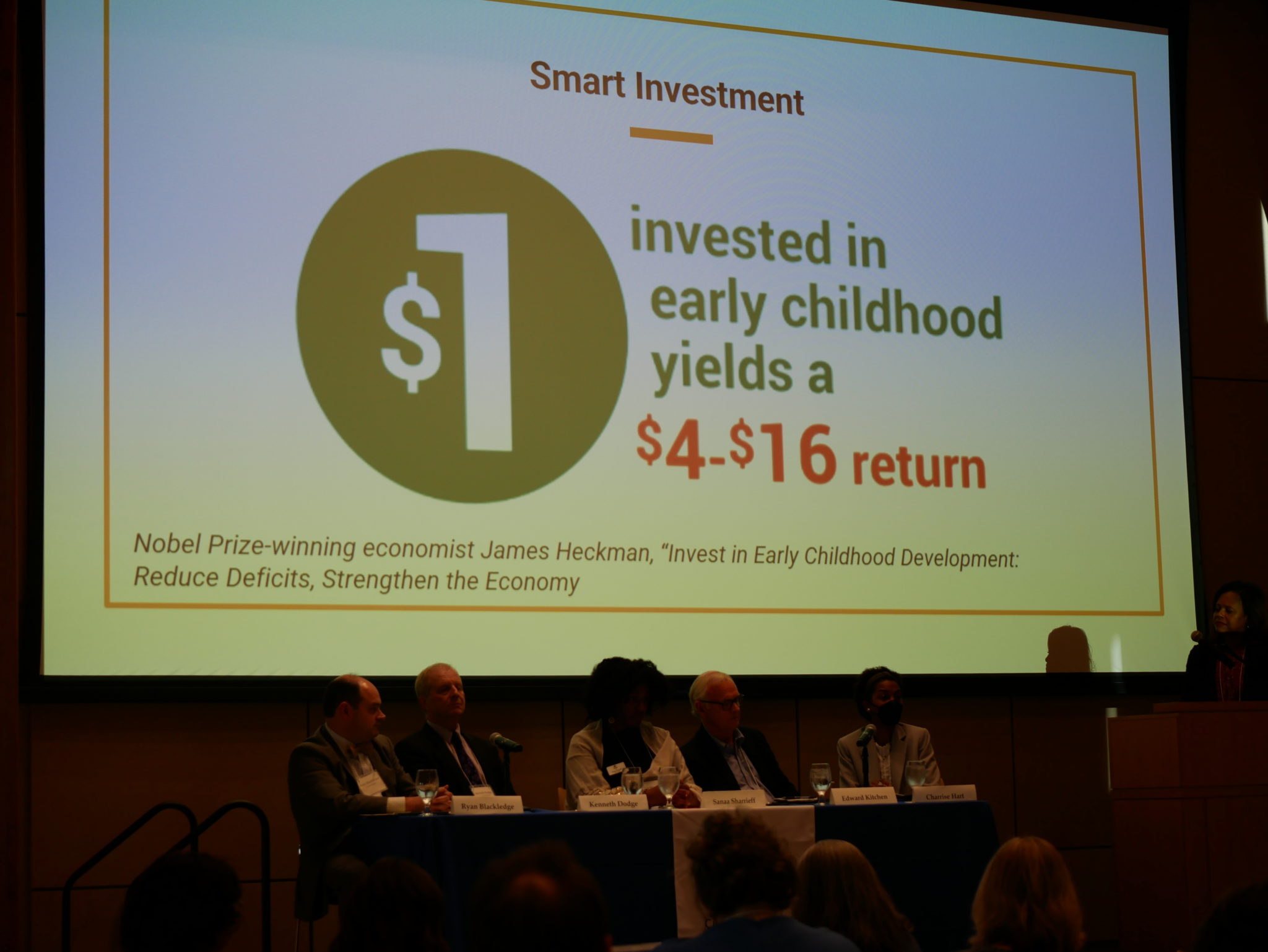
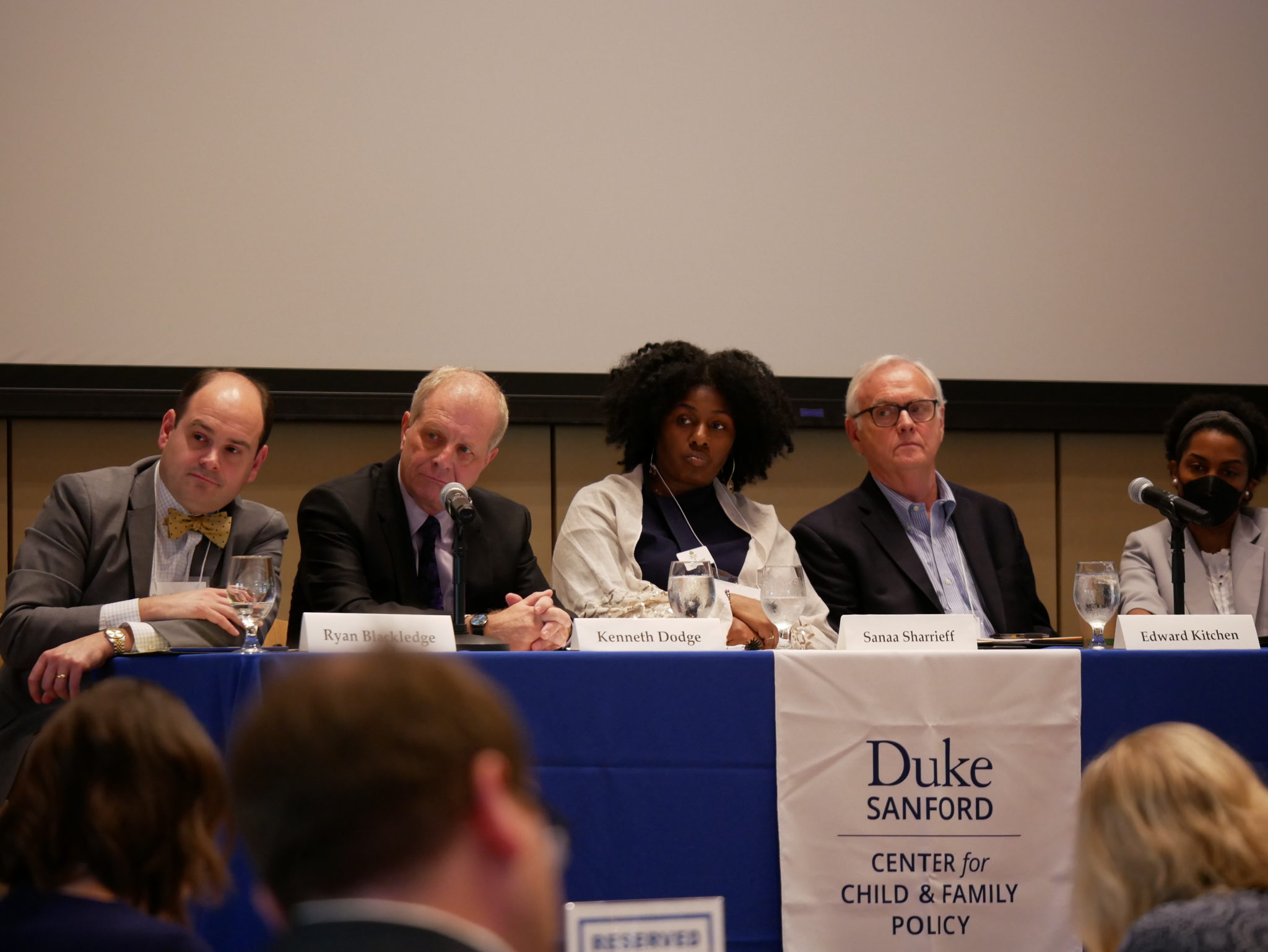
A recent win: The group has partnered 16 OB-GYN offices so that families will be assigned a guide through the prenatal period and after birth to connect them with whatever services they need.
Defining and measuring the initiative’s impact, or its “it,” is a challenge, said Kenneth Dodge, a Sanford professor and the founding and past director of the Center for Child and Family Policy, as well as the founder of Family Connects International.
“This is so big and so broad, in my mind the ‘it’ is a new idea — it is universal primary care for families,” Dodge said. The project has two main parts, he said: “reaching every family and understanding what they need, and providing resources to address those needs.”
“This vision is as breathtaking and groundbreaking as public school universally was 200 years ago for children age 7 to 16, but for children 0 to 8,” Dodge said. “Think about it in that kind of magnitude.”
‘Fundamental to our economic sustainability and growth’
In Guilford County and across the state, leaders highlighted the importance of engaging the business community to become advocates and funders in expanding opportunities for children and families.
Business leaders were at the table in Guilford’s initiative from the beginning, said Ryan Blackledge, director of government affairs at Cone Health and chair of Ready for School, Ready for Life’s legislative action subcommittee.
“That’s really where this started, and it comes from a standpoint of recognizing that everything that we do has an impact on other parts of our lives,” Blackledge said. “If all we’re focusing on is early childhood education and not also focusing on being ready for school and then readiness for high school and readiness for work, and then when you’re working, you need a place for your kids to go, and really understanding how all of this allows a community o be successful together — that’s what I think really contributed to the buy-in with the business community.”
Clemmons echoed a need for broadening the voices advocating for early childhood change, including business leaders and policymakers on both sides of the aisle.
“I think it is very important that we start talking about early childhood as fundamental to our economic sustainability and growth,” she said. “We know the moral imperative of providing for our children, we know the stories, but all of us talking to each other about those things is not getting us where we need to be.”
Clemmons asked the crowd: “If you knew what you know now… would we start the public education system at 5? If we knew all the things we now know, would we start a public good of building who we’re going to be as a state at 5? Or would we be doing something different?”


